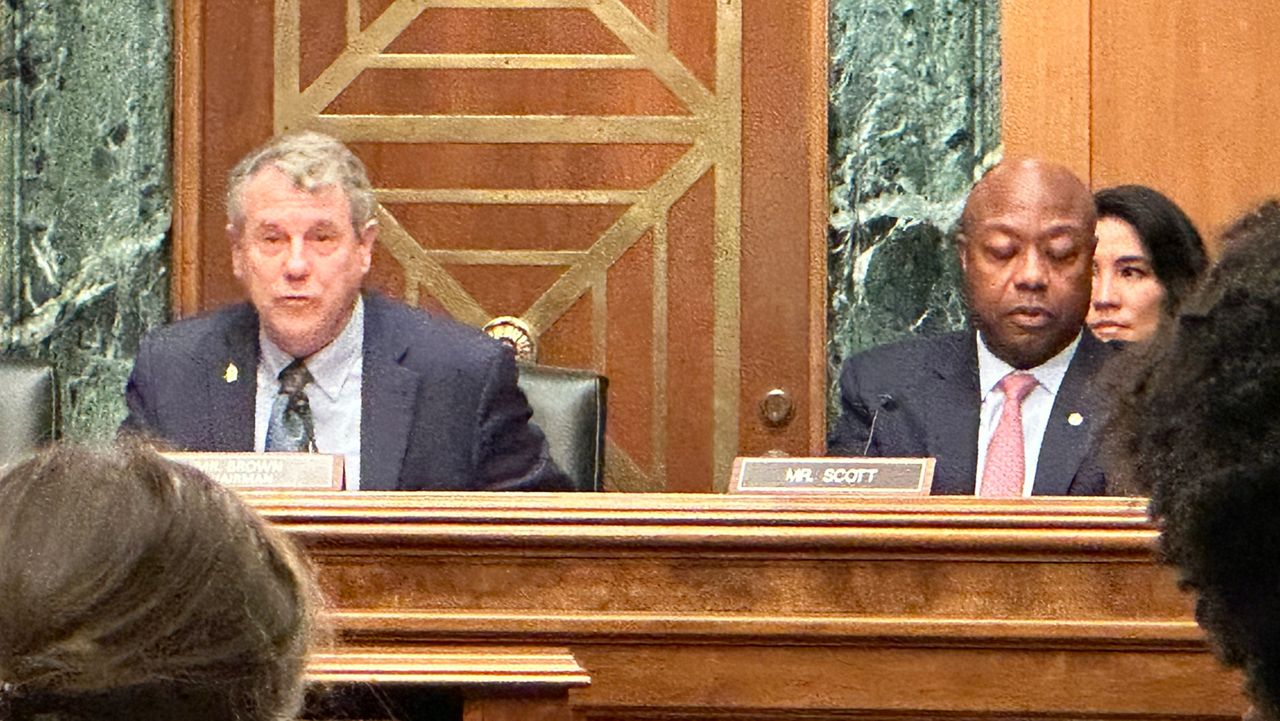COLUMBUS, Ohio — A letter has been issued to the Ohio Secretary of State's Office trying to stop former President Donald Trump from participating on the 2024 ballot.
"Free Speech for People" and "Mi Familia Vota Education" fund are writing letters to different states citing the United States 14th Amendment and the former president's role in the Jan. 6 insurrection.
Groups are citing Section 3 of the 14th amendment that says no one can hold office in the U.S. if they have engaged in insurrection, or rebellion against the country, or if they have given aid to people who have been involved.
"The argument being made is that by getting the Jan. 6 events," said Justin Buchler, associate professor of political science at Case Western Reserve University. "Donald Trump engaged in an act of sedition under the terms of the 14th Amendment."
The letter reads in part: "You have the authority and responsibility to determine, as part of the state ballot qualification process, whether a candidate for office is ineligible to appear on the Ohio presidential primary ballot.”
Mary Cianciolo, interim press secretary of LaRose’s office, released a statement to Spectrum News that states, "Ohio law clearly lays out the process for a candidate to seek ballot access, and our job is to follow the law, unless a court orders us to do otherwise. We’re not aware of any litigation in Ohio related to this fringe legal theory, and we do not anticipate being told to deny ballot access to any candidate who complies with Ohio law."
Meanwhile, the wording of the amendment itself leaves room for interpretation. It doesn’t specify that a candidate needs to be convicted of insurrection or rebellion. The legal experts Spectrum News spoke with say defining those two actions is not an easy task.
"Donald Trump has been charged with conspiracy to defraud the United States and obstruction, but not insurrection," Buchler said. "So, even with regard to Jan. 6, the weakest charges that he, that Donald Trump, might have faced would have been something like incitement. But even that would have been a difficult set of charges because of First Amendment protections."
"Who decides what is the burden of proof?" Bradley Smith, Blackmore Nault Professor of law at Capital University Law School, said. "Is the burden of proof like a criminal law beyond a reasonable doubt? Or is it more like a civil ruling, just preponderance of the evidence? And then who gets to decide that?"
The 14th Amendment was ratified immediately after the Civil War took place in the United States. The purpose of this clause was to stop confederates who had been deemed a threat to democracy in the late 1860s from taking office in the United States government.










